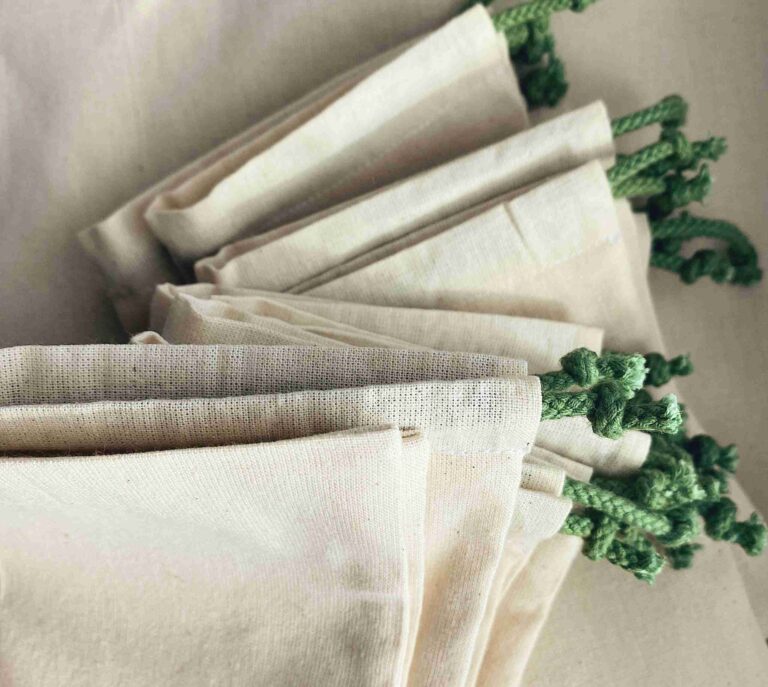Everywhere you look, you will find single-use plastics, the ocean is currently littered with “over 5 trillion bits of plastic,” and this figure will only grow over time.
They probably gained popularity due to their price and ease. But the sad fact still stands that they are one of the leading contributors to both climate change and land and water degradation. Fortunately, there are lots of sustainable options you can use to replace single-use plastics in your life.
Anything harmful to the environment can never ultimately benefit us. So, today we’re sharing with you a list of 10 alternative ideas that can be used in place of single-use plastics from our lives, landfills, and rivers.
Table of Contents
10 alternatives to single-use plastics
The following are some common alternatives to single-use plastics:
1. Bamboo cutlery
The plastic cutlery from our take out meals contribute significantly to the pollution we are experiencing.
Forks, tablespoons, and knives made of disposable plastic, as well as dishes and bowls, can be substituted with bamboo. because bamboo cutlery is a great option for outdoor gatherings, food delivery, and everyday usage because it is lightweight, strong, and naturally antibacterial.
2. Paper bags
Using paper bags instead of plastic ones protects the environment by reducing pollution. Additionally, it includes preventing marine species from ingesting plastic debris that could harm them, such as whales and sea turtles.
Due to their biodegradability, they are capable of being used for processes like composting and are easier to recycle.
3. Reusable drinking bottles
Drinking water straight from a glass is the most economical and environmentally beneficial choice compared to purchasing bottled water. But if you’re on the run and can’t access water from the faucet, spend money on a high-quality reusable water bottle. When purchasing bottled beverages, prefer glass bottles or easily recyclable cans to plastic ones.
4. Reusable coffee cups
Coffee cups that are single-use or disposable are a huge waste of resources. They are used up at an astronomical rate all around the world. For instance, the United Kingdom alone uses roughly 7 million cups every day, or a total of 30,000 tons of paper cup waste yearly, of which fewer than 400 are recycled. When you frequently use sustainable coffee cups, you avoid contributing to the wasteful process of making plastic or paper cups.
5. Washable diapers
These days almost all household waste contains an alarming number of stinky baby diapers. But why not consider reusable diapers?
The interior of reusable diapers is softly lined with microfiber inserts and they are waterproof and machine washable. These delicate diapers are not only fantastic for your baby and the environment, but they also save you a ton of money each month by eliminating the need to purchase hundreds of disposable ones.
6. Rechargeable batteries
Rechargeable batteries are advantageous for the environment as well as your wallet. They are significantly more sustainable than disposable batteries since they may be used repeatedly. Having said that, only buy high-quality rechargeable batteries from well-known manufacturers because inferior ones risk discharging too quickly.
7. Sanitary cups
Tampons and disposable sanitary products are thrown away in landfills contributing to the environmental pollution. Luckily, menstruation cups offer a more environmentally friendly substitute. Don’t be alarmed if the idea of switching to these cups makes you uneasy. There are numerous companies that sell soft, comfortable, simple-to-sterilize silicone cups to make it easier for you to get through your period.
8. Linen bread bags
Bring some linen bread bags with you the next time you go to a baker’s or farm stand for freshly baked bread, sourdoughs, and sandwiches to avoid using plastic or paper packaging. Not only are reusable linen bags excellent for carrying bread, but they also help keep the crusts fresh for longer. These bags made of 100 percent cotton linen permit the baked goods to ventilate while guarding against drying out or weakening.
9. Glass or metal container
Recyclable materials should be chosen over disposable plastic bags and containers. Transporting trail mix or salad dressings can be done in an empty jam jar; however, carrying leftovers requires the use of glass containers. The next time you order lunch, you may even bring your own stainless steel container and ask for your preferred takeout to be filled in it
10. Beeswax wrap
In place of plastic wrap, use a beeswax wrap that can be recycled and composted. It gives you a practical, zero-waste food storage choice that can help you get rid of single-use plastic items from your pantry. What’s more, these organic, breathable wraps prolong the freshness of leftover meals.
Read also: Recycling, 9 useful and innovative products made from 100% recycled plastic
Are single-use plastics good or bad?
Single-use plastic isn’t fundamentally a “good” or “bad” substance, much like any other material. It has greatly aided us in leading more fruitful, secure, and healthy lives. But how we create a more environmentally friendly means of utilizing them will determine its sustainable and efficient use.
The secret to more sustainably using plastic may lie in the development of recyclable plastic products with long product life cycles.
However, all these benefits can not change the fact that eliminating single-use plastics will drastically reduce pollution and the demand for plastic production, both of which are factors in the global warming that plastic production causes.
Read also: Great Pacific Garbage Patch, what is it and the solutions to treat it












